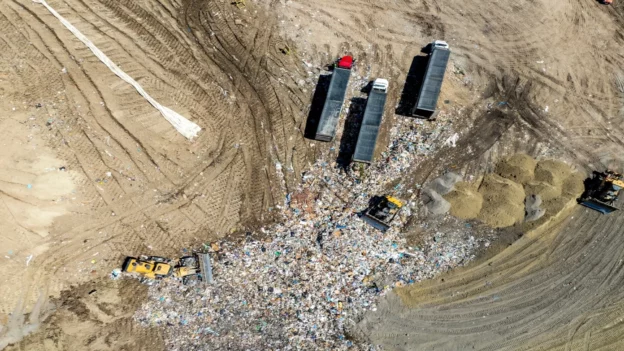Cape Town is making progress in its efforts to transform landfill waste into energy. The city is currently developing two key projects that will enable the production of electricity by burning landfill gas.
Landfill waste: transformation process
This gas, which is mostly made up of methane, originates from the decomposition of organic matter such as food waste in landfills. To carry out this conversion, systems of perforated pipes or ‘wells’ are being installed to extract the gas and use it as fuel in engines specifically designed for this purpose.
Furthermore, Grant Twigg, head of CoCT’s Urban Waste Management Directorate, has informed Engineering News Online that the waste-to-energy project at the Coastal Park landfill is awaiting the installation of a flow meter thermal mass.
This step is crucial before the gas engines start operating and are connected to the electrical grid, a process that is also underway. If plans go smoothly, electricity generation is expected to begin in the second half of this year.
Progress and obstacles in the Vissershok project
Regarding the Vissershok landfill project, Twigg mentions that there have been delays in hiring a gas flaring operator, due to the difficulties of the acquisition process. This setback has affected the timeline for developing the designs needed for the waste-to-energy system, significantly postponing its progress.
Despite this, an initial 2 MW generation infrastructure is scheduled for installation in 2026/27, with future expansion potentially reaching between 7 MW and 9 MW by 2028/29 , depending on gas efficiency.
The cost of the first phase of the Vissershok project has been estimated at just R79 million and includes two generators, various filters, controls, and configuration and installation costs. While at the Vissershok landfill, the costs of the second phase have yet to be defined, it has been determined that the local grid could support up to 7 MW of electricity , although this will require verification during the design stages.
Environmental and economic benefits
The ability to transform landfill gas into energy not only represents an opportunity to generate electricity, but also to mitigate the environmental impact of methane , a potent greenhouse gas. Furthermore, the use of this gas can contribute to the creation of carbon credits, generating additional income that could be reinvested in more sustainable waste management projects. This Cape Town initiative not only supports the production of renewable energy, but also strengthens the circular economy by harnessing available resources more efficiently.
Follow us on social networks and don’t miss any of our publications!
Inspenet.com YouTube LinkedIn Facebook Instagram X
Source: engineeringnews.co.za
Photo: Shutterstock

